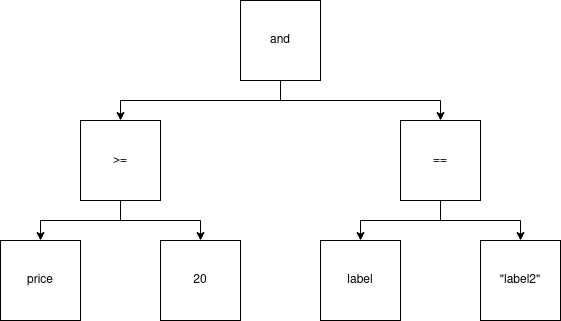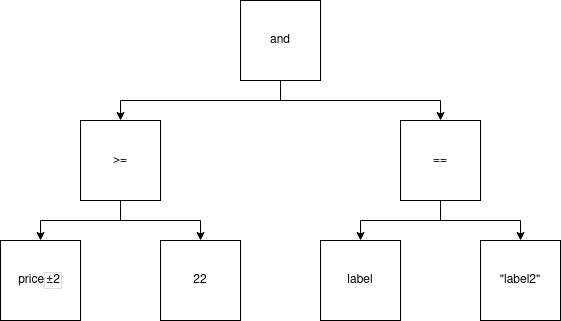A central goal of Json-Logic-Typed is to represent expressions in interoperable format.
This allows the expressions to be exchanged between different actors (typically the frontend and backend).
Such a JSON data format enhances how you can convey information across different platforms and languages. These platforms can in turn evaluate the underlying expression on their own.
Evaluation “evaluates” the underlying expression to provide you a result.
Use json-logic-scala to evaluate expressions
The previous pages cover parsing a typed version of JsonLogic into a Scala data structure, and the reverse process of serialization.
In all these cases, the underlying data might be an expression that you want to evaluate. json-logic-scala provides utilities to evaluate these expressions. This section goes over how to do this.
More precisely, this section is about evaluating the Scala data structure JsonLogicCore, which represents JsonLogic-Typed JSON.
The EvaluatorLogic class
To evaluate a JsonLogicCore Scala data structure, use the EvaluatorLogic utility class.
- The
EvaluatorLogicclass is responsible for evaluatingJsonLogicCoreinto anAnyvalue. Configuration is provided with aEvaluatorLogicConfobject. If noEvaluatorLogicConfobject is provided, the default one is used. EvaluatorValueLogicis a trait that provides the abstract methodevaluateValueLogic(value: Any): Any. A class implementing this trait will be applied to transform leaf values (in an abstract syntax tree) before evaluating.EvaluatorLogicConfprovides mappings fromTypeValuetoEvaluatorValueLogic, and mappings from the operator codename to the right method to be used for evaluation.
Evaluation example:
Consider the following expression:
\(\mathbf{price} \ge 20\ \&\ \mathbf{label}\neq\mathbf{label2}\) \(\mathbf{price} \ge 20\ \&\ \mathbf{label}\neq\mathbf{label2}\)
It is represented by the following abstract syntax tree:

If evaluated with the following EvaluatorValueLogic
class IncrementLeafInt(intToBeAdded: Int) extends EvaluatorValueLogic {
def evaluateValueLogic(value: Any): Any = {
value match {
case int: Int => if (int < 20) int - intToBeAdded else int + intToBeAdded
case any => throw new IllegalArgumentException(...)
}
}
}
val incrementLeafInt = new IncrementLeafInt(2)
is equivalent to an evaluation on the following abstract tree:

Summary: how EvaluatorValueLogic evaluates
Evaluation starts by applying the class extending EvaluatorValueLogic on all syntax tree node leaves that are associated with this TypeValue (see the explanation on TypeValue
A detailed example of code using EvaluatorValueLogic
class IncrementLeafInt(intToBeAdded: Int) extends EvaluatorValueLogic {
def evaluateValueLogic(value: Any): Any = {
value match {
case int: Int => int + intToBeAdded
case any => throw new IllegalArgumentException(...)
}
}
}
val incrementLeafInt = new IncrementLeafInt(2)
val evaluatorLogicConf = EvaluatorLogicConf
.createConf(evaluatorValueLogicManualAdd = Map(INT_CODENAME -> incrementLeafInt))
}
val evaluatorLogic = new EvaluatorLogic(evaluatorLogicConf)
val jsonLogicCore: JsonLogicCore = ...
evaluatorLogic.eval(jsonLogicCore)